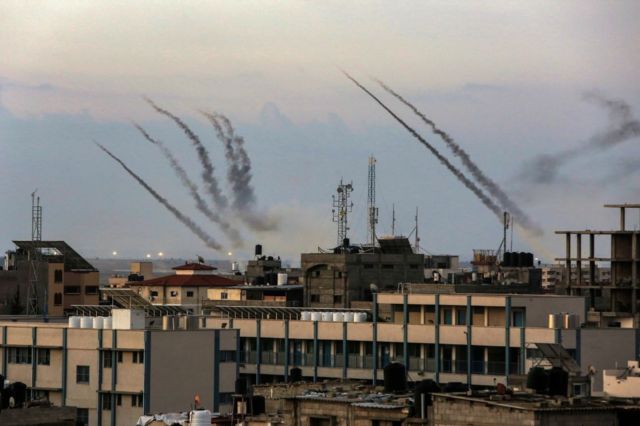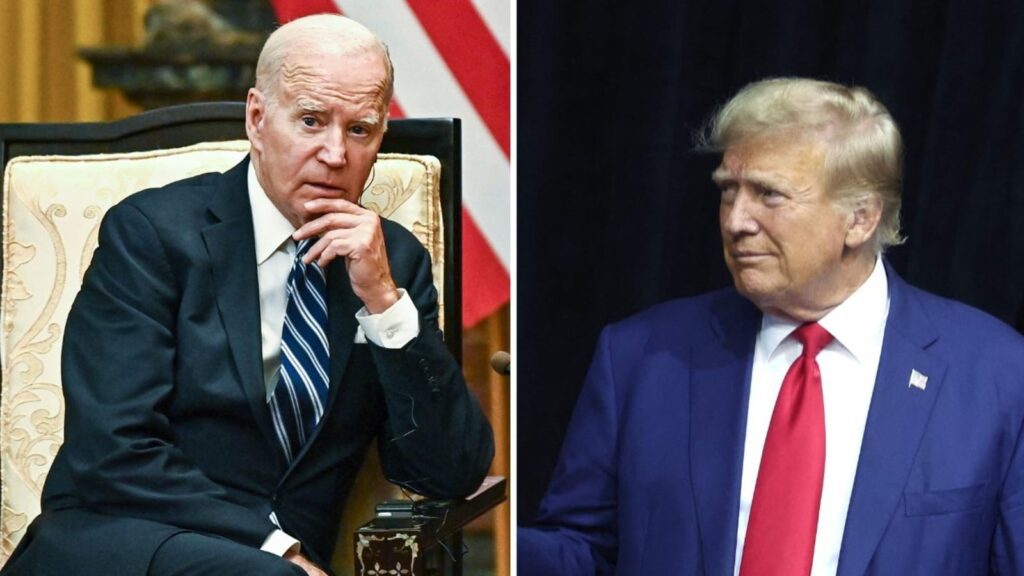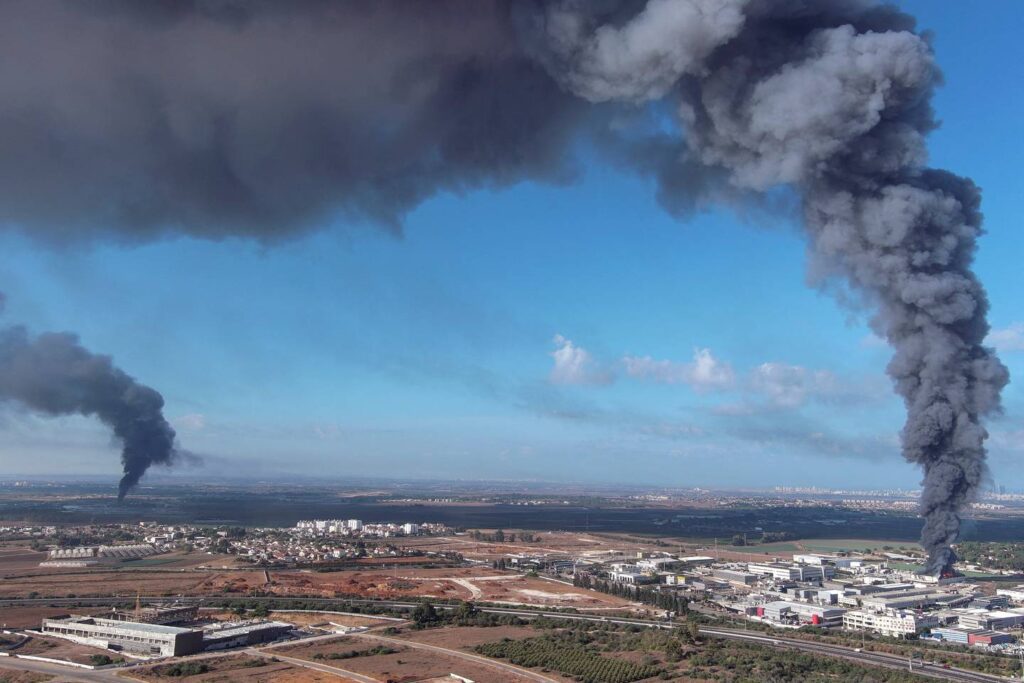In a shocking dawn assault, Israel was ambushed by a monumental Hamas strike, the biggest in years. Thousands of rockets erupted from the Gaza sky, but the real shocker? Biden’s recent $6 billion payout to Iran, a known Hamas supporter, now faces severe scrutiny. Did American dollars inadvertently fuel this calamity?
As the sun’s first rays began to pierce the morning haze, Israel woke up to a nightmare. Over 5,000 rockets, an unyielding rain of terror, were launched from the Gaza Strip by Islamist group Hamas. As if the rocket onslaught wasn’t devastating enough, armed gunmen were reported to have breached the border, adding ground assaults to the mix. CNN reported that these meticulously timed attacks left at least 22 Israelis dead, including a senior citizen. The panic and chaos were palpable as sirens echoed through the heart of the historic city of Jerusalem and beyond.
Prime Minister Benjamin Netanyahu:
— Prime Minister of Israel (@IsraeliPM) October 7, 2023
"Citizens of Israel,
We are at war, not in an operation or in rounds, but at war. This morning, Hamas launched a murderous surprise attack against the State of Israel and its citizens. We have been in this since the early morning hours. pic.twitter.com/C7YQUviItR
The audacity of the assault was evident in its timing. At approximately 6:30 a.m. local time, when most households were in slumber, the rockets were launched. The Israel Defense Forces, in a statement, emphasized the severity and breadth of this operation. With terrorists entering Israeli territory at multiple locations, the security forces found themselves fighting on multiple fronts.
Hezbollah militants, on motorcycles, approach the border fence with Israel in southern Lebanon.#Israel #Palestine #Hamas #Hezbollah #طوفان_القدس #فلسطين pic.twitter.com/uXxj6sZhWU
— NewsAlerts Global (@NewsAlertsG) October 7, 2023


While the Israeli Defense Forces (IDF) responded swiftly, declaring an immediate state of war alert, Prime Minister Benjamin Netanyahu convened an emergency security meeting, signifying the gravity of the situation. According to the IDF, Hamas’ surprise tactic was to unleash the rocket barrage while the nation was still in slumber, a ruthless strategy that exploited a moment of vulnerability.


Meanwhile, as Israeli defenses countered with air attacks, the toll on the Palestinian side mounted, with nearly 200 casualties reported in Gaza. Hamas justified this large-scale aggression as a retaliation to alleged violations at the Al-Aqsa Mosque and claimed resistance against increased settler violence.
Israeli Navy destroyed two boats carrying dozens of terrorists attempting to infiltrate into #Israel – #IDF Press Service. pic.twitter.com/dJPofEIYOm
— NEXTA (@nexta_tv) October 7, 2023
Hamas’ military commander, Mohammad Deif, vociferously marked the commencement of their operation, “Al-Aqsa Storm.” His rallying cry implored Palestinians to wield any weapon they possessed, signaling a desperate call to arms and potential escalation of hostilities.
Israeli President Isaac Herzog, in response, sent out a heartfelt message of encouragement to all affected. Expressing solidarity with the commanders and soldiers of the IDF, as well as other security and rescue services, Herzog aimed to galvanize the spirit of the Israeli people during these testing times.
Hamas: 5,000 rockets launched on Israel. Israel declares "state of war alert".
— Rahul Shivshankar (@RShivshankar) October 7, 2023
Make no mistake, Islamist terror isn't about "liberating territory" it's really about "liberating the world" from other faiths.
Israel knows this. India knows this. pic.twitter.com/xLXyjQzYNQ
But amidst this chaos, there’s a parallel narrative gathering steam. Just last month, the Biden administration authorized the transfer of $6 billion to Iran, an ally of Hamas, in a controversial prisoner swap deal. With the timing of these events, questions arise – was this substantial fund, directly or indirectly, a booster for Hamas’ sudden show of firepower?


Former President Trump didn’t hold back his criticism. He lambasted Biden for what he perceived as an ill-advised move, opining that the money would inevitably fund terrorism across the Middle East.


Furthermore, adding salt to the wound, a top adviser to Iran’s Supreme Leader and a prominent Iranian military commander, Yahya Rahim Safavi, publicly commended Hamas’ actions. These endorsements underscore Iran’s stance and fuel speculations about the role of Biden’s financial deal in this crisis.
Historically, this attack harks back to memories from half a century ago, mirroring the surprise attack on Israel during Yom Kippur in 1973 by Arab states. But today, on Simchat Torah, a day of joy for Jews, Israel finds itself on the defensive again, with the world closely watching.
As rockets continue to shadow Israel’s skies, questions loom large. Did Biden’s multi-billion-dollar transaction inadvertently embolden a terror surge? History echoes with chilling precision, evoking memories of battles past. As the ‘Al-Aqsa Storm’ engulfs the region, Israel finds itself at a critical juncture. With global eyes focused on the Holy Land, the decisions made in the coming hours could shape the future of the Middle East. Amidst this chaos, one thing is clear: Israel stands undeterred, unwavering in its commitment to safeguard its people and land. The storm may rage, but Israel’s spirit remains indomitable.



